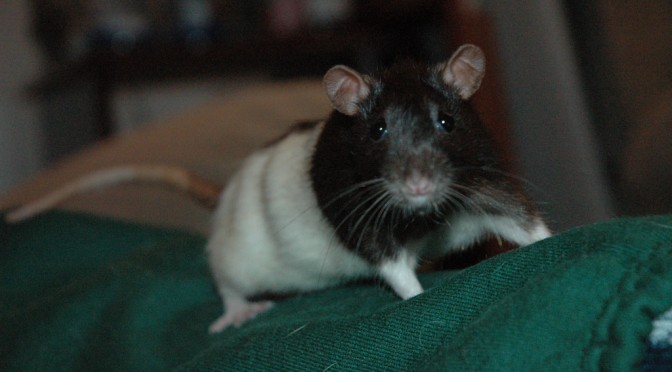It is well known that what a pregnant woman puts in her body, it will have some influence on the developing fetus (either good or bad). Not only does the mother’s diet affect the baby during development in utero, but it can also have a long-term effect on the child throughout her or his life.
These long-term changes are likely influence by changes in the DNA profile of the developing fetus, particularly in the microRNAs, which are responsible for regulating gene expression in the body. MicroRNAs (miRNAs) are responsible for the everyday normal functioning of cells, however, any mutation or other dysfunction of these miRNAs can lead to disease either in the near future or over the long term.
A new study published in the journal PLOS One sought to determine if different dietary fats consumed by the mother influenced miRNA expression of the child when these fats were ingested during pregnancy. (Note: rats were used during this study for ethical reasons).

Rats were split into groups and each group fed one of the following fatty acid-based diets: soybean oil, olive oil, fish oil, linseed oil, or palm-oil.
Rats were fed one of the above diets from conception during gestational day 12. After, all rats were fed a standard diet.
Rats that were not pregnant were used as controls.
Liver concentrations of miRNAs were measured for pregnant and control rats, as well as the offspring produced from the pregnancies.
Specific miRNAs studied were those that are involved in insulin signaling.
Important Findings:
- Liver concentrations of fatty acids in pregnant and non-pregnant rats reflected that of the specific diet consumed by the rats in early pregnancy.
- Liver concentrations of fatty acids in rat pups marginally reflected that of the specific diet consumed by their mothers during early pregnancy.
- Liver concentrations of fatty acids of adult offspring were similar to one another, regardless of what their mothers ate during early pregnancy.
- miRNA expression in adult offspring were influenced by the specific diet consumed by their mothers during early pregnancy.
- Specifically, the following miRNAs were influenced by maternal dietary fatty acid intake: miR-215, miR-10b, miR-26, miR-377-3p, miR-21, and miR-192 (plus several others).
- There was reduced expression of miR-192, miR-215, and miR-10b insulin-signaling miRNAs in adult offspring whose mothers were fed the fish oil diet.
The overall results of this study show that maternal fatty acid intake during pregnancy influences the miRNA expression of insulin-signaling genes in offspring. While insulin-signaling genes were the only ones studied, it can be assumed that maternal fatty acid intake might influence much more.
This study also showed that maternal dietary fatty acid intake influences gene expression in adult offspring, indicating that what
![Photo By Ken Hammond (USDA) (http://www.usda.gov/oc/photo/02cs2059.htm) [Public domain], via Wikimedia Commons](http://french-paradox.net/wp-content/uploads/2015/03/Pregnant-Woman-2-french-paradox-195x300.jpg)
As an example, over-expression of certain miRNAs and other genes has been linked to increased risk of diabetes, cancer, and many other diseases. In this study, pregnant rats eating a fish oil-based diet had pups who had reduced expression of several insulin-signaling miRNAs when they reached adulthood, potentially decreasing their risk for various metabolic diseases (like diabetes) that might be associated with those same miRNAs.
It was not determined which maternal diet was “better” in terms of miRNA expression in adult offspring, but would certainly make a fascinating follow-up study.
Source:



![Photo By ceejayoz (http://www.flickr.com/photos/ceejayoz/3579010939/) [GFDL (http://www.gnu.org/copyleft/fdl.html) or CC BY 2.0 (http://creativecommons.org/licenses/by/2.0)], via Wikimedia Commons](http://french-paradox.net/wp-content/uploads/2015/01/premature_underweight_infant_with_ventilator-french-paradox-225x300.jpg)